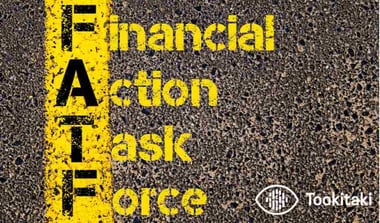About FATF
Headquartered in Paris, the Financial Action Task Force (FATF) is an independent inter-governmental body that helps develop and promote policies to protect the global financial system against money laundering, terrorist financing, and predicate offences such as corruption, drug trafficking and arms trafficking. FATF was founded in July 1989 by a Group of Seven (G-7) Summit in Paris, initially to examine and develop measures to combat money laundering and the threat it posed to the world financial system. Comprising over 39 countries, FATF has a ministerial mandate to establish international standards for combating various financial crimes. Over 180 jurisdictions have joined the FATF and committed at the ministerial level to implementing the Financial Crime Task Force Standards and having their anti‐money laundering (AML) systems assessed.
FATF’s Member Nations
According to the official website, the FATF currently comprises 37 member jurisdictions and 2 regional organisations, representing most major financial centres in all parts of the globe. These nations and organisations are:
Argentina, Australia, Austria, Belgium, Brazil, Canada, China, Denmark, European Commission, Finland, France, Germany, Greece, Gulf Cooperation Council, Hong Kong, China, Iceland, India, Ireland, Israel, Italy, Japan, South Korea, Luxembourg, Malaysia, Mexico, the Netherlands, New Zealand, Norway, Portugal, Russian Federation, Saudi Arabia, Singapore, South Africa, Spain, Sweden, Switzerland, Turkey, the United Kingdom and the United States.
There is currently only one FATF observer nation, which is Indonesia.
FATF Associate Members
To achieve global implementation of the FATF Recommendations, the FATF relies on a strong global network of FATF-Style Regional Bodies (FSRBs). Currently, there are nine FSRBs that promotes the effective implementation of the FATF Recommendations and provide expertise and input in FATF policy-making.
The present FATF associate members are:
- Asia/Pacific Group on Money Laundering (APG)
- Caribbean Financial Action Task Force (CFATF)
- Council of Europe Committee of Experts on the Evaluation of Anti-Money Laundering Measures and the Financing of Terrorism (MONEYVAL)
- Eurasian Group (EAG)
- Eastern and Southern Africa Anti-Money Laundering Group (ESAAMLG)
- Financial Action Task Force of Latin America (GAFILAT)
- Inter-Governmental Action Group against Money Laundering in West Africa (GIABA)
- Middle East and North Africa Financial Action Task Force (MENAFATF)
- Task Force on Money Laundering in Central Africa (GABAC)
What does the FATF do?
As an international watchdog setting up policies to combat financial crimes, the Financial Action Task Force (FATF) works primarily in the following ways:
- It sets International Recommendations to combat money laundering and terrorist financing.
- It assesses and monitors compliance with the FATF Recommendations.
- It conducts typology studies of money laundering and terrorist financing methods, trends, and techniques and publishes them.
- It responds to new and emerging threats such as proliferation financing and regulation of virtual assets.
Today, FATF is regarded as the global anti-money laundering watchdog and its policies are highly regarded and treated as law by members and many non-members. It has developed the FATF Recommendations, or FATF Standards, ensuring a “coordinated global response to prevent organised crime, corruption and terrorism”. By working against money laundering, the agency looks to tackle other crimes such as illegal drug deals, human trafficking and funding for weapons of mass destruction.
What is the FATF blacklist?
The FATF is involved in reviewing money laundering and terrorist financing techniques and constantly strengthens its standards to address new and emerging risks. The task force also monitors countries to ensure they implement its standards fully. The process of monitoring the implementation of its Recommendations is done through peer reviews or “mutual evaluations” of member countries. Following the review, the FATF lauds good efforts from countries and also holds non-complying countries to account.
For identifying non-complying countries, FATF has maintained the FATF blacklist or the “Call for action” countries and the FATF grey list or the “Other monitored jurisdictions” since 2000. The FATF blacklist is the agency’s official list of “Non-Cooperative Countries or Territories” (NCCTs) which it judges to be non-cooperative in the global fight against money laundering and terrorist financing. According to the FATF, the NCCTs are those having “significant strategic deficiencies in their regimes to counter money laundering, terrorist financing, and financing of proliferation”. In connection with the blacklisted countries, the agency cautioned its members “to apply enhanced due diligence, and in the most serious cases…, to apply counter-measures to protect the international financial system from the ongoing money laundering, terrorist financing, and proliferation financing risks emanating from the country”. As of 3rd August 2020, North Korea and Iran were on the FATF blacklist.
North Korea
The Democratic People's Republic of Korea (DPRK) faces serious financial sanctions from other countries due to its status as a blacklisted country. The FATF has directed its members to give “special attention to business relationships and transactions with the DPRK, including DPRK companies, financial institutions, and those acting on their behalf”. Further, the agency urged all members to “apply effective counter-measures and targeted financial sanctions in accordance with applicable United Nations Security Council Resolutions” to protect themselves from risks emanating from North Korea.
In its statement on 21st February 2021, the FATF said it remains concerned by the Democratic People's Republic of Korea (DPRK)’s failure to address the significant deficiencies in its AML/CFT regime and the serious threats they pose to the integrity of the international financial system. The FATF also urged the DPRK to immediately and meaningfully address its AML/CFT deficiencies. Further, the FATF raised serious concerns about the threat posed by the DPRK’s illicit activities related to the proliferation of weapons of mass destruction and its financing.
Iran
The FATF noted the following AML/CFT deficiencies for the inclusion of Iran in the blacklist.
- Inadequate criminalization of terrorist financing, including by removing the exemption for designated groups “attempting to end foreign occupation, colonialism and racism”
- Identification and freezing of terrorist assets in line with the relevant United Nations Security Council resolutions
- Ensuring an adequate and enforceable customer due diligence regime
- Demonstrating how authorities are identifying and sanctioning unlicensed money/value transfer service providers
- Ratifying and implementing the Palermo and TF Conventions and clarifying the capability to provide mutual legal assistance
- Ensuring that financial institutions verify that wire transfers contain complete originator and beneficiary information.
In October 2019, the FATF asked its members to: “require increased supervisory examination for branches and subsidiaries of financial institutions based in Iran; introduce enhanced relevant reporting mechanisms or systematic reporting of financial transactions; and require increased external audit requirements for financial groups with respect to any of their branches and subsidiaries located in Iran.”
According to a FATF statement in February 2020, Iran has not completed the action plan it committed in June 2016. Therefore, the FATF noted that Iran will remain on its blacklist until the full action plan has been completed.
About FATF grey list
The FATF grey list is the agency’s official list of countries and jurisdictions that are identified as having strategic deficiencies in their regimes to counter money laundering, terrorist financing, and proliferation financing. Unlike the blacklisted ones, the grey list countries actively work with the FATF to address strategic deficiencies in their regimes. “When the FATF places a jurisdiction under increased monitoring, it means the country has committed to resolving swiftly the identified strategic deficiencies within agreed timeframes and is subject to increased monitoring,” says the FATF.
FATF Blacklist and Greylist Screening & Monitoring
The FATF blacklist/greylist screening and monitoring is the process of screening customers against the FATF watchlists by firms ensuring the effectiveness of their AML programme. Normally, financial regulators across the globe mandate their subjects to do necessary checks while onboarding customers and throughout their business relationships. Screening a customer against the FATF blacklist and greylist and monitoring their transactions on an ongoing basis will help mitigate AML/CFT risks effectively. For effective and efficient FATF blacklist and greylist screening, regulatory technology (regtech) companies such as Tookitaki offer solutions based on modern technologies, including AI and machine learning.
Anti-Financial Crime Compliance with Tookitaki?



